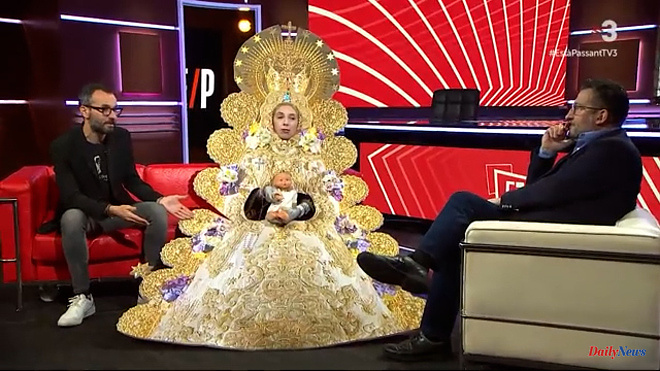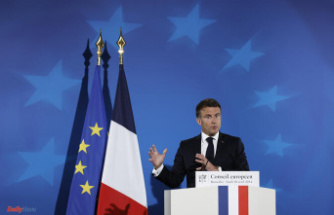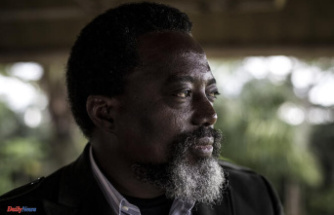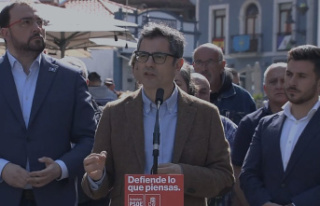New controversy over a comedy program on TV3 in which the Virgen del Rocío was parodied in the middle of Holy Week. On April 4, the space 'Està passant' featured an actress dressed as the Virgen del Rocío with a doll in her hands that pretended to be the baby Jesus and she was interviewed by the presenters Toni Soler and Jair Dominguez. During the program, the "Virgin" complained about her cumbersome outfit and when the presenters told her that her devotees want her dressed like that, she sent them "to fuck off."
In addition, Soler remarked that it was the "Andalusian baroque style" and Domínguez compared it with La Moreneta, patron saint of Catalonia, which is more "austere". At one point in the interview, the actress dressed as a 'Virgin' assured that "I haven't been able to get laid properly for 200 years!", due to the fact that she had to take off her clothes and then added that she was "hotter than the stick of a churrero" while flirting with the presenters.
The actress imitated the Andalusian accent and the presenters made jokes about her way of speaking, as well as ironizing that the Virgen del Rocío does not go out in procession during Holy Week.
The parody provoked the indignation of the president of the Junta de Andalucía, Juanma Moreno, who assured that "humor is one of the hallmarks of our land, but to be funny it is done with respect and affection." In this sense, Moreno added that "it is a lack of respect for Andalusia, and for thousands of Andalusians and their traditions. I hope that they know how to do better when asking for forgiveness."
It has not been the only political reaction. Also Teresa Rodríguez, spokesperson for Adelante Andalucía, Teresa Rodríguez made this parody ugly on TV3 and recalled that "you can make humor out of everything. Also of Holy Week. But not with so much malice, ignorance and Andalusian phobia (imitate the accent of your bloody stop , for being soft)".
Also, the Federation of Andalusian Cultural Entities in Catalonia (FECAC) urged TV3 to ask for "public apologies" since they consider the Virgin to be a "mock" in the humorous space of "very bad taste" and "deserves the strongest rejection ". "We do not know if they would also be so disrespectful to others and if they would make such humiliating sections with other religions, with other dedications," says a letter sent by the president of the FECAC, Daniel Salinero, to the president of the Catalan Audiovisual Council (CAC), Xevi Xirgo, demanding "restitution of the honor of the Virgen del Rocío".
"This is not how you join a country" considers the FECAC about TV3 since "it should be an example of backbone" and regretted that it is not respectful of the religious beliefs of hundreds of thousands of people."
In addition, the Diocese of Huelva regretted the treatment of the Virgin in this program of the regional channel. The Bishop of Huelva, Santiago Gómez, remarked that freedom of expression "cannot offend religious beliefs, nor can it offend Rocío Catholics. The right to freedom of thought and expression, recognized in the Universal Declaration of Human Rights, does not It can imply the right to offend the religious feelings of believers, a principle that is obviously valid for any religion".
The bishop stressed that "human coexistence requires a climate of mutual respect to promote peace among us. Criticism and ridicule from Catholics show a lack of human sensitivity and can lead to undesirable provocations." and he added that the parody of the Catalan station "is not the way to work to heal the wounds that may exist in our coexistence."
The pilgrimage of the Virgen del Rocío, in the Almonte village, brings together a million pilgrims every year who travel from different parts of Spain.
According to the criteria of The Trust Project












